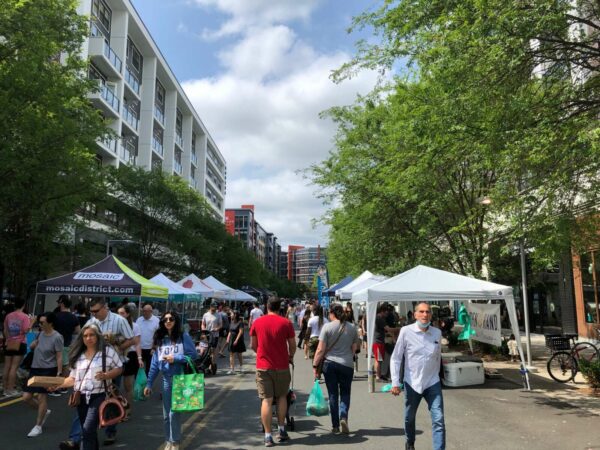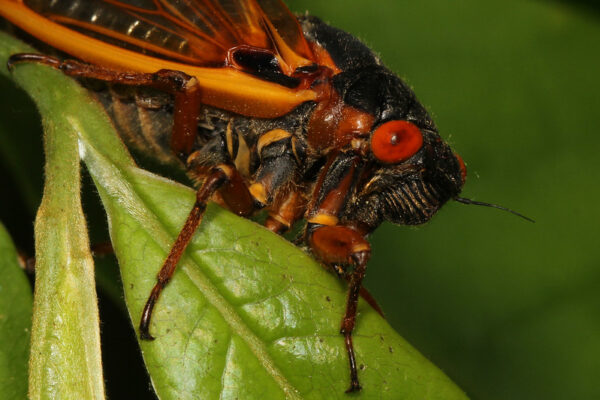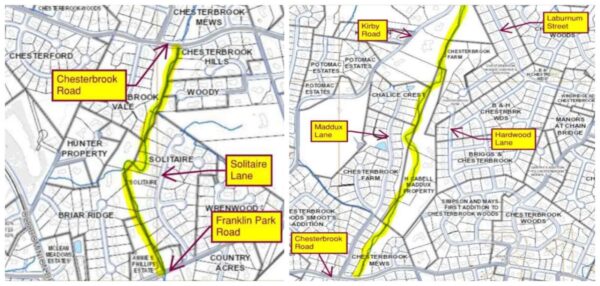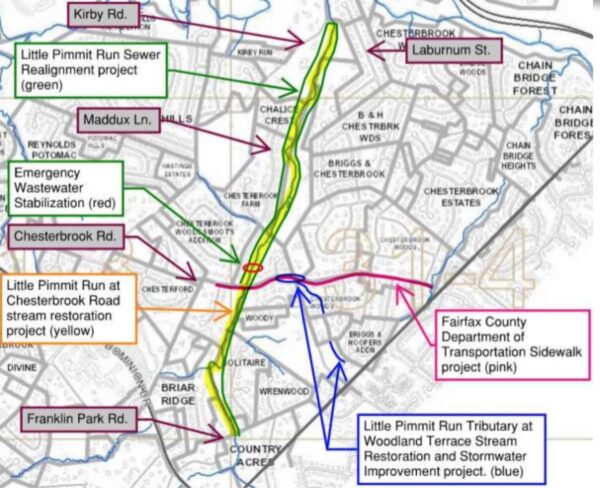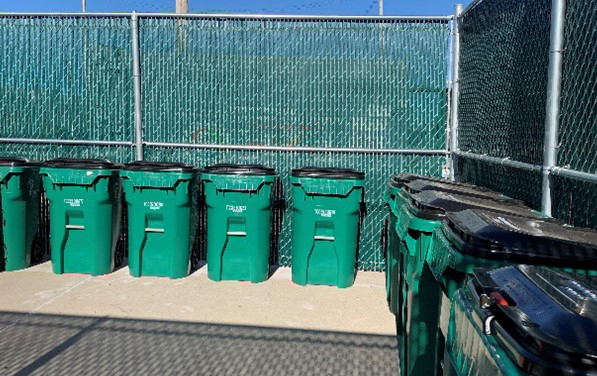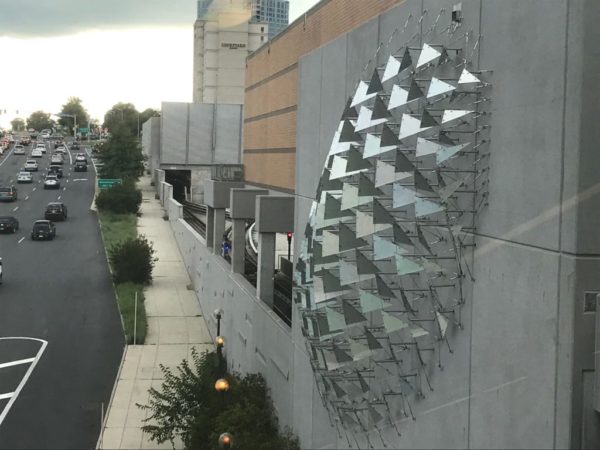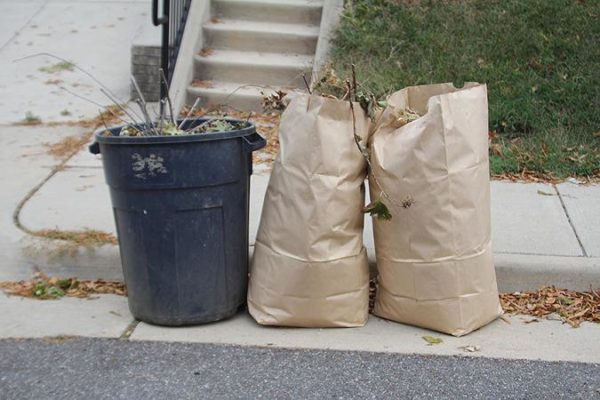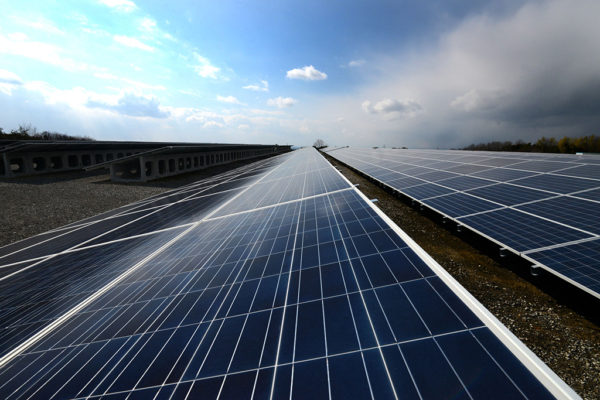
Fairfax County is continuing its efforts to transition to renewable energy with the installation of solar panels on county government and public school buildings, but it will now do so with a different vendor.
The county ended its contract with the company Sigora Solar yesterday (July 1), about 18 months ahead of schedule.
Sigora Solar is one of three vendors awarded contracts to install, manage, and maintain solar energy infrastructure for county government and school buildings in December 2019, when Fairfax County announced what it said was the largest solar power purchase agreement initiative by a Virginia locality to date.
The original contracts with Sigora, Sun Tribe Solar, and Ipsun Power were set to run through Dec. 31, 2022.
However, the county amended its contract with Sigora on June 10 to state that it would be “terminated for convenience” effective July 1. Sigora was designated as the primary contractor for roof-mounted solar panel projects.
Moving forward, the county will now work with Sun Tribe Solar, the secondary contractor for roof-mounted panels and the primary contractor for carport or canopy-mounted panels.
“Under the terms of the agreement, the county leases space on its buildings for the companies to install solar panels that those vendors will own, and the county buys the energy generated by the panels at a fixed price,” Brian Worthy, a public information officer with Fairfax County’s Office of Public Affairs, said.
“However, these companies have the right to decide whether or not to install panels at any buildings identified by the county,” Worthy said. “During the past year and a half, the county selected 30 buildings for solar panels, and we are eager to move forward with these projects.”
The Fairfax County Board of Supervisors has approved leasing necessary roof space at two batches of county-owned properties so far. The first round of eight sites came on Oct. 20, 2020, and another 22 sites were added on March 9.
The sites approved for solar panel installations in the Tysons area are:
- McLean Government Center and Police Station (1437 Balls Hill Road, McLean)
- Wolf Trap Fire Station #42 (1315 Beulah Road, Vienna)
- McLean Community Center (1234 Ingleside Avenue, McLean)
- Thomas Jefferson Library (7415 Arlington Blvd., Falls Church)
- Providence Community Center (3001 Vaden Drive, Fairfax)
- Merrifield Center and Kerrifield Center Garage (8221 Willow Oaks Corporate Drive, Fairfax)
Under the solar power purchase agreements, the installed solar panels will be owned, operated and maintained by the contracted vendors, rather than the county. The county will simply purchase electricity produced by these panels over time.
When the contracts were announced in 2019, the county estimated that the initiative could potentially yield over $60 million in electricity cost avoidance over the terms of the contracts. Additionally, it was projected that approximately 1.73 million megawatt hours of renewable energy could be generated at the county’s facilities.
A former state legislator has convinced the Town of Vienna to save some trees by an iconic preschool that’s slated to become a new housing development.
A developer is turning Parkwood School into a housing subdivision called Parkwood Oaks that could have up to nine homes, according to engineering notes for the developer in a plan on file with the town.
The son of Parkwood School founder Clarene Vickery, Raymond “Ray” Vickery Jr. sent a letter to the town council on June 11 asking them to save several trees, including a large oak, on the edge of the property at 601 Marshall Road SW near the Ware Street SW intersection.
“We want to particularly save the big oak my dad planted about 60 years ago at the corner of Ware and Marshall,” Vickery told Tysons Reporter.
Clarene Vickery, 101, died in 2019 after founding Parkwood School in 1956 and spending most of her life as director of the preschool, which has served over 10,000 kids. She lived in the upstairs part of the home, which also served as part of the school with its lower half.
Vickery’s father, Raymond Ezekiel Vickery, was a lieutenant colonel with the U.S. Army and died in 1987 at age 77. The couple is buried in Arlington National Cemetery.
Vienna Town Manager Mercury Payton said in an email that trees located next to an existing sidewalk needed to be removed because the town requires sidewalks to be upgraded to a new code when there’s a new home or development building.
But Vickery argued in his letter to the town that “slight deviations could be made to save the large oak and other trees that mean so much to the citizens of Vienna who live in the 601 Marshall Road vicinity.”
It worked: Vickery connected with the town, which agreed to save a few key trees there next to a sidewalk, including the oak his dad planted.
However, some trees will still have to be removed, said Scott Diffenderfer, an urban arborist for the town.
“On the other hand, the developer is saving a lot of trees, and there’s going to be trees planted as the development progresses,” Diffenderfer said.
A property sale closed last Monday (June 21), and buyer John Sekas of Sekas Homes Ltd. has agreed to erect a historical marker there, Vickery said.
Vickery has also offered to donate Japanese cherry trees to be planted along Ware Street in honor of his parents.
The preschool had multiple single-family dwellings for its campus, but during the COVID-19 pandemic, it used virtual programming instead of in-person activities.
According to Vickery, Malisa Eaton, the school’s executive director, has taken over Parkwood School and is looking for new premises. She didn’t immediately respond to messages seeking comment.
Vickery, who served in the Virginia General Assembly from 1974 to 1980, says he plans to go the town council’s July 12 meeting to address the town’s tree ordinance, highlighting how trees help reduce carbon dioxide emissions and protect the ozone. The latter benefit is particularly important to him as someone who has been affected by skin cancer.
“The ordinance, though, is written so that trees, even though they’ve been marked and identified, can — can be taken down and replaced with saplings that’ll have 20% cover in 20 years,” he said. “And my perspective is if you have coverage there of existing trees…you ought to save existing trees.”
Save those rotting veggies and bits of meat left over from last night’s dinner, because Fairfax County is expanding its composting program.
As of yesterday (Wednesday), residents can now bring their food scraps to four county farmers markets for composting. The locations include the Mosaic District Farmers Market, which operates year-round from 9 a.m. to 2 p.m. on Sundays.
Food scrap composting turns waste into a resource. Those wrinkling carrots or uneaten bread crusts can be transformed over time into natural fertilizer, putting nutrients back into the soil.
Proper composting can also prevent food waste from ending up in landfills and streams, taking up space and potentially damaging the ecosystem.
“The county is working to divert as much waste from disposal as possible,” Fairfax County Department of Public Works spokesperson Sharon North said in an email. “In the past few years, we have focused on glass recycling and reducing contamination to improve single stream recycling…Providing food scraps drop off locations will help divert this compostable material from disposal.”
North says food scraps can account for as much as 20% of waste, but nearly all of it can be composted, including meat, bones, dairy, vegetables, fruit and bread.
Some food-related paper products, such as paper plates, paper towels, and napkins, can be composted as well, as long as there’s no cleaning products or bodily fluids on them. Plastic bags, dryer sheets, yard waste, fats, oils, grease, tin foil, and foam containers, however, should never be composted.
Fairfax County first implemented a composting pilot program in November 2020 at two larger locations: the I-95 Landfill Complex in Lorton and I-66 Solid Waste Transfer Station in Fairfax.
North says the initial pilot program was a success, prompting county leaders to discuss options for an expansion.
“One of the main things we learned is that our residents are willing to separate out food scraps and bring them to compost drop off locations,” she writes.
The I-95 landfill and I-66 transfer station will remain permanent composting drop-off sites. The four farmers markets that are now part of the program’s expansion were specifically chosen due to their accessibility and central locations within the county.
Three of the chosen markets are seasonal and managed by the Fairfax County Park Authority. The Mosaic District farmers’ market is a year-round, private market operated by FreshFarm.
“Making locations more accessible throughout the county at Farmers Markets will allow for more opportunities to drop off food scraps for composting rather than having that material in the trash,” North said.
The compost program is expected to cost the county an estimated $50,000 annually.
A teenager born when the Brood X cicadas last emerged is now running a business to help people handle these creatures’ unusual life cycles.
With her older brother’s help, McLean High School student Michelle Martinkov started Cicada Defender to sell netting and other products and services to assist people during the cicada emergence and mating season, which happens on this magnitude only once every 17 years.
Michelle notes her parents, who immigrated to the U.S., always joked that she was a cicada baby, telling her stories of trillions of cicadas emerging seemingly overnight.
“For 17 years I have been excitedly waiting to finally experience what my parents were talking about,” she told Tysons Reporter.
She started the business with help from friends and other workers, setting up protective nets for cicadas that lay eggs on vulnerable young trees and providing clean-up services for exoskeletons left behind.
Cicadas shed their exoskeletons, a protective covering, before they take flight. They live above ground for only a few weeks to fly and mate before they die off. The buzzing that has filled the Fairfax County air over the past couple of weeks are calls to signal their availability to potential mates.
Eggs deposited on trees will hatch after about six weeks, fall to the ground, and then burrow into the soil, remaining underground for another 17-year cycle.
“I started Cicada Defender to learn about entrepreneurship and e-commerce and to spread awareness about Brood X,” Michelle said. “My goal with Cicada Defender is to see how many homes/businesses we can help and how much of our online presence we can expand over the next two months of the emergence.”
The Environmental Protection Agency advises against using pesticides, saying they don’t help stop the massive numbers of insects that will continue to come and could harm people and other insects and animals that eat cicadas, including pets.
In addition, cicadas themselves don’t pose any danger to people and, in fact, play an important environmental role. Along with providing fodder for animals like birds, they can aerate lawns, improve water filtration in the ground, and add nutrients to the soil as they decompose, the EPA notes.
While they can damage young trees, the insects can’t harm larger, more established trees, and they will not eat leaves, flowers, fruits, or garden produce, making it unnecessary to cover them, according to the EPA.
Michelle says Cicada Defender uses a “highly sustainable” process with no pesticides or heavy machinery.
“All we use is netting, shovels, trash bags, buckets, and occasionally a ladder when necessary,” she said.
She hopes to help the community by educating them about cicadas and providing some support through the experience.
“Something we are extremely proud of is that we intend to donate a portion of our proceeds to local plant nurseries,” Michelle said. “We feel this gives back to our community and provides a business a greater sense of purpose.”
Photo courtesy Judy Gallagher/Flickr
Fairfax County is designing restoration plans for an eroded stretch of Little Pimmit Run from Franklin Park Road to just upstream of Kirby Road in McLean.
The $9.23 million project will address 7,100 feet of degraded stream channel in addition to about 1,250 feet of tributaries, which will be restored so that they tie into the main channel of Little Pimmit Run.
“The water has a lot of energy and it’s causing a lot of erosion,” project manager Fred Wilkins said during a recent meeting.
According to Wilkins, the project aims to slow the speed of the water, which will protect infrastructure and area vegetation. It will also restore the ecology of the stream and the surrounding area, while preventing sediment and pollutants from flowing from Little Pimmit Run into the Chesapeake Bay.
Identified in 2019, other problems caused by the ongoing erosion include undercut banks and compromised trees, the county’s project page says.
Wilkins says another goal of the project is to protect infrastructure.
“There are multiple locations where we have sanitary pipes that cross the stream bed, and in some cases, the water can move debris that can damage the sanitary crossings, as shown during the 2019 storm, which caused emergency repairs to be needed,” he said.
Last but not least, the project manager said the county aims “to give the community something to enjoy.”
The project will unfold in two phases, starting with a stretch of stream from Franklin Park Road to Chesterbrook Road that runs parallel to Solitaire Lane. The second phase picks up north of Chesterbrook Road and goes away the way to Kirby Road.
Right now, county officials are deliberating the future alignment of the channel. Once one is chosen, concept designs should be ready to be submitted this September 2021. A community meeting is slated for November.
There will not be a construction timeline until the designs are completed.
The project straddles private property and county property, and will require coordination between the county and property owners, Wilkins said.
People in the area can expect to see flagging and survey markers over the next several months, according to the county’s project website.
“Survey markers do not necessarily mean that the marked tree will be removed,” the website said.
This restoration work joins another stream restoration project along the channel between Forest Lane and North Albemarle Street, along with a sewer realignment project, emergency wastewater stabilization, and a Fairfax County Department of Transportation sidewalk project, Wilkins said.
The project is being funded through the county Stormwater Service District.
Images via Fairfax County
Town of Vienna residents might soon be able to drop their compost off in the town instead of having to drive up to 10 miles to the nearest Fairfax County facility.
However, the town is still searching for a location and a vendor to pick up the compost, according to Christine Horner, a water quality engineer for Vienna who is spearheading the project.
The idea of a stand-alone composting drop-off site has been long mulled-over.
The Vienna Town Council approved funding for such a program on May 13, 2019 as part of the 2020 fiscal year budget, Horner says. Since then, the town has been looking for a place to set up a compost site.
“The project is in motion,” she said. “We are actively searching for an appropriate location.”
Once a location is set, Vienna will be ready “to get the facility installed and contract with a vendor for pick-up services,” Horner said.
Finding a location is top-of-mind for Councilmember Nisha Patel, who is campaigning to get reelected for a second term this May.
“We don’t have an area that is free of residents to compost,” Patel told Tysons Reporter. “It’s something we need to look out and see where we can encourage more composting.”
While Vienna staff look for an appropriate location in town, Patel encourages residents to use Fairfax County’s composting drop-off at the I-66 Transfer Station (4618 West Ox Road) in Fairfax and the I-95 Landfill Complex (9850 Furnace Road) in Lorton. Those locations are open from 7 a.m. to 4 p.m. daily.
“These programs provide a similar service but are separate initiatives,” Horner said in an email. “The Fairfax Composting Drop Off location is currently available for Vienna residents.”
The county sites accept a wide range of goods for composting, including food — meat, dairy, eggs, vegetables, fruits and grains — along with flowers, uncoated paper bags, towels and plates, compostable flatware, flowers, coffee grounds and tea bags. Scraps and paper goods can be collected in kitchen pails, secured in compostable bags, and tossed into the green bins.
Image via Fairfax County
What would it take for you to reduce your carbon footprint?
That’s the question Fairfax County is posing as it enters the public engagement portion of its Community Energy and Climate Action Plan (CECAP) initiative, which will establish goals and strategies for reducing greenhouse gas emissions and mitigating the impact of climate change.
Launched in early 2020, the CECAP process is being led by the Fairfax County Office of Environmental and Energy Coordination (OEEC) with support from the Metropolitan Washington Council of Governments and the Fairfax-based consulting firm ICF.
The county previously sought public input on the plan in August and September, when a CECAP Task Force started developing draft mitigation goals.
In addition to holding two public meetings last week, one focused on energy and another on transportation, waste, and development, the county is looking to gather more public feedback through a trio of short surveys.
“We want to make sure that we expand our reach and get information from as many county residents and business owners as we can,” ICF Director of Human Capital Michelle Heelan said when facilitating the energy community meeting on Feb. 23.
One survey gauges respondents’ interest in undertaking projects to make their home more energy-efficient and sustainable, like installing solar panels and replacing light bulbs and HVAC systems. Another deals with transportation and development, asking questions about public transit, electric vehicles, and mixed-use development.
There is also a more open-ended survey for people to share general comments on the CECAP initiative.
“In Fairfax County, energy use and transportation are the two greatest sources of greenhouse gas emissions,” the OEEC says. “The CECAP will address both issue areas, and with your input, we can ensure that the final plan reflects the needs of everyone in our community as we work to reduce our collective carbon footprint.”
The surveys are currently available in English, Spanish, Korean, and Vietnamese. They will be open until 11:59 p.m. on Mar. 14.
ICF will draft a final report with input from a CECAP Working Group and the community for the Fairfax County Board of Supervisors to adopt this summer, according to OEEC Senior Community Specialist Maya Dhavale.
Trash collectors in Fairfax County will not pick up leaves, grass clippings, and other yard waste stored in plastic bags when the collection season begins on Monday (Mar. 1).
After holding a public hearing, the Fairfax County Board of Supervisors voted 9-1 on Tuesday (Feb. 23) to officially prohibit the use of plastic bags for yard waste by amending its Solid Waste Management Ordinance, a move that supporters say is necessary to reduce pollution and make the county more environmentally friendly.
“To reverse climate catastrophe, each of us must make many small and large steps,” Faith Alliance for Climate Solutions Board Chair Eric Goplerud said when testifying at the public hearing. “Banning plastic bags to contain yard waste is a step that the Board of Supervisors can take to lead our community to care for our common home, the Earth.”
Fairfax County began transitioning away from using plastic bags for yard waste last year, encouraging residents to use compostable paper bags or reusable containers instead.
In an update to the board’s environmental committee on Oct. 27, county staff reported that about 51% of homes surveyed during the 2020 yard waste season were still utilizing plastic bags, but Fairfax County Director of Engineering and Environmental Compliance Eric Forbes says he is “hopeful and confident” that the bags can be eliminated after the past year of education and outreach.
Now that the ban has been approved, the county’s solid waste management program is encouraging private trash and recycling collection companies to notify their customers that waste in plastic bags will no longer be collected.
“We do not anticipate a hundred percent success rate in the beginning, but we will continue our outreach and collaboration with industry to help our community to reach compliance with the new requirements,” Forbes said.
Forbes acknowledged that compostable paper bags are slightly more expensive to buy than plastic bags. County staff found that paper bags designed to carry yard waste cost about 50 cents per bag, whereas plastic bags cost around 30 cents.
Yet, the overall cost of utilizing plastic may be greater, since the material is difficult to extract and can damage equipment during the composting process, pushing up costs for collectors and, by extension, customers, Board of Supervisors Chairman Jeff McKay says.
While paper bags are preferable to plastic, Forbes noted that residents can avoid the costs of yard waste removal altogether by managing it on-site with backyard composting or allowing grass clippings to decompose on their lawn, a practice known as grasscycling.
McKay says he got 75 emails on the proposed ban, with an even split between supporters and opponents, but he believes it is time for Fairfax County to join the rest of the D.C. region, where some jurisdictions have required paper bags or reusable containers for more than a decade.
“We ultimately just have to decide whether we think this is a good idea or not,” McKay said. “…I think clearly, based on the testimony that we’ve heard today, based on where everyone around the region is, and frankly, based on where the science is, this is something that we must do now to help with our environmental challenges.”
Photo via Fairfax County Government
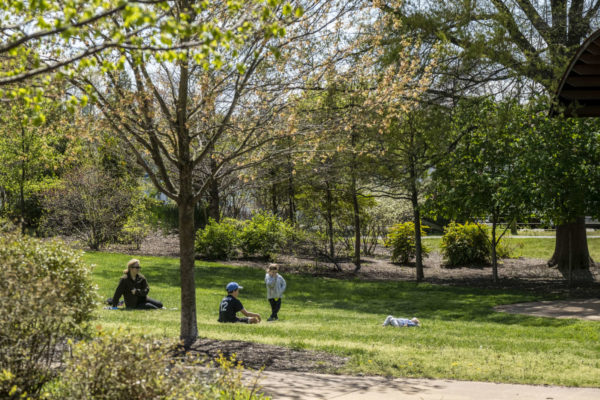
Combatting climate change will be an all-hands-on-deck effort, and at least one private company in Fairfax County has promised to do its part to help.
HITT Contracting, a construction contractor headquartered in Falls Church, announced a commitment on Feb. 11 to become carbon-neutral by 2023. The company pledged to reduce its reliance on carbon after starting to track its emissions in 2018 and learning that its operations generated 19,173 carbon-equivalent metric tons of greenhouse gases.
“Environmental stewardship is at the core of all we do. After tracking and understanding our greenhouse gas emissions, we could not ignore the effect our operations have on the environment,” HITT Director of Sustainability Isaiah Walston said. “By reducing our carbon footprint and moving toward carbon neutrality, we can positively impact our workforce, clients, and society as a whole.”
Walston acknowledged that carbon neutrality is not the same as eliminating all carbon emissions, but says the company sees this as a starting point and is “committed to taking further steps to reduce our emissions in the future.”
HITT’s emissions reduction strategy will involve purchasing primarily U.S.-based carbon offsets in locales where it operates. It has also pledged to focus on making its office and on-site operations efficient and sustainable even as it plans to expand.
The company also says in its press release that it will continue tracking its corporate emissions and present annual feasibility studies on its reduction practices.
“The commitment to becoming carbon neutral is our next major investment in fighting climate change,” HITT CEO Kim Roy said. “Making the world a better place through our work is a core value that aligns with our clients and partners. It’s simply the right thing to do as a good corporate citizen.”
Fairfax County commended HITT’s effort to reduce its carbon footprint, as the county pursues similar green aspirations.
“The Fairfax County Office of Environmental and Energy Coordination is pleased to see local business leaders, like HITT, taking steps to address climate change,” OEEC Deputy Director Susan Hafeli said. “The business community has a large role to play in addressing greenhouse gas emissions, and Fairfax County is fortunate to have numerous examples of companies making strides in sustainability planning and action.”
Reducing emissions is especially critical for building operations and construction, which collectively account for 38% of all carbon dioxide emissions globally, according to a United Nations report published in December.
Hafeli says Fairfax County will look to businesses, as well as community organizations and individuals, to help drive emissions down as it develops its first-ever Community-wide Energy and Climate Action Plan (CECAP), which will set goals and strategies for reducing its greenhouse gas emissions and addressing the impacts of climate change.
The county is also developing a Climate Adaptation and Resilience Plan to address and identify risks and areas of concern in the county that could eventually be impacted by climate change.
Fairfax County will hold two community meetings next week to discuss the CECAP. The first meeting on Feb. 23 will focus on energy issues, while the second on Feb. 25 will center on transportation, waste, and development.
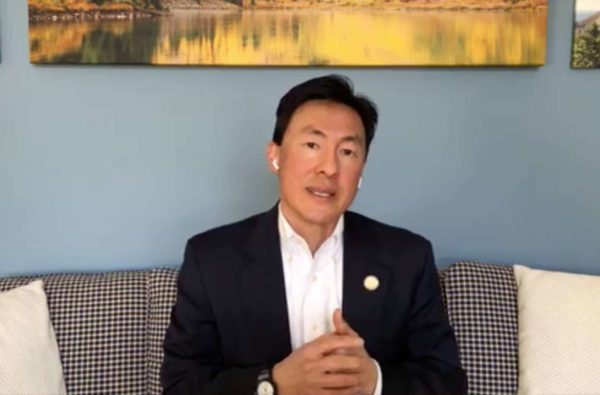
Since he was first elected to represent Virginia’s 35th District in the House of Delegates, Del. Mark Keam (D-Vienna) has emerged as a steadfast advocate for environmental justice and reform.
That dedication to environmental policy was rewarded on Thursday (Feb. 4) when Keam’s House Bill 2118 passed the House and has now advanced to the State Senate for consideration. The bill seeks to create a grant program to fund electric vehicles.
The Virginia Electric Vehicle Grant Fund would allow schools and other qualified entities in Virginia to get state support for projects to replace vehicles that utilize fossil fuels with electric vehicles. A portion of the bill is aimed specifically at increasing the number and use of electric school buses in the state.
Keam said that his bill was inspired by his work with Mothers Out Front, a grassroots organization in Fairfax that focuses on renewable and clean energy. That work led Keam to review and focus on the toxins and greenhouse gas emissions that children are exposed to by school buses.
He brought a similar bill to the 2020 General Assembly, but it ultimately failed to pass the House, which Keam attributes to questions about Virginia’s ability to acquire funding for the project. Those questions, however, are seemingly being addressed at the federal level.
Keam credits the increase in support for his bill this year to President Joe Biden’s prioritization of efforts to address climate change and reduce carbon emissions in the transportation sector. The bill is designed to partner with the Biden administration’s plans, and it would be set up to solicit federal funding and the private sector.
“My goal is, we set up this fund, we set up some criteria around that — who should apply for what — and as soon as some funding comes in, then we’ll set up this whole program that hadn’t existed before,” Keam said. “I was very proud to get this bill passed.”
Keam’s environmental work and support extends beyond that one bill, though.
He is also the chief co-patron for HB 2074, which would establish an Interagency Environmental Justice Working Group and require state agencies to adopt environmental policies. The bill’s chief patron is Del. Shelly Simonds (D-Newport News).
Keam touts HB 2074 and HB 2221, a bill proposed by Del. Hayes, Jr. (D-Chesapeake), as significant legislation to promote environmental justice in Virginia going forward. HB 2221 requires applicants seeking environmental permits to conduct community outreach.
“With these bills passing this year, Virginia is now going to have not only a very robust environmental justice law and an advisory council, a working group, policy, statements and definitions, but now we’re also going to be requiring license holders and permit holders to come in to do reviews ahead of time,” Keam said. “And we’re also going to require local governments to start adopting some of this as well.”
Keam is also a chief co-patron for HB 1965 and HB 2042, which have passed the House and are being discussed in the Senate.
HB 1965 would direct the state Air Pollution Control Board to institute a program for low-emissions and zero-emissions motor vehicles with a model year of 2025 and later. HB 2042 would allow localities to exceed general requirements for tree replacement and other conservation ordinances. Read More


